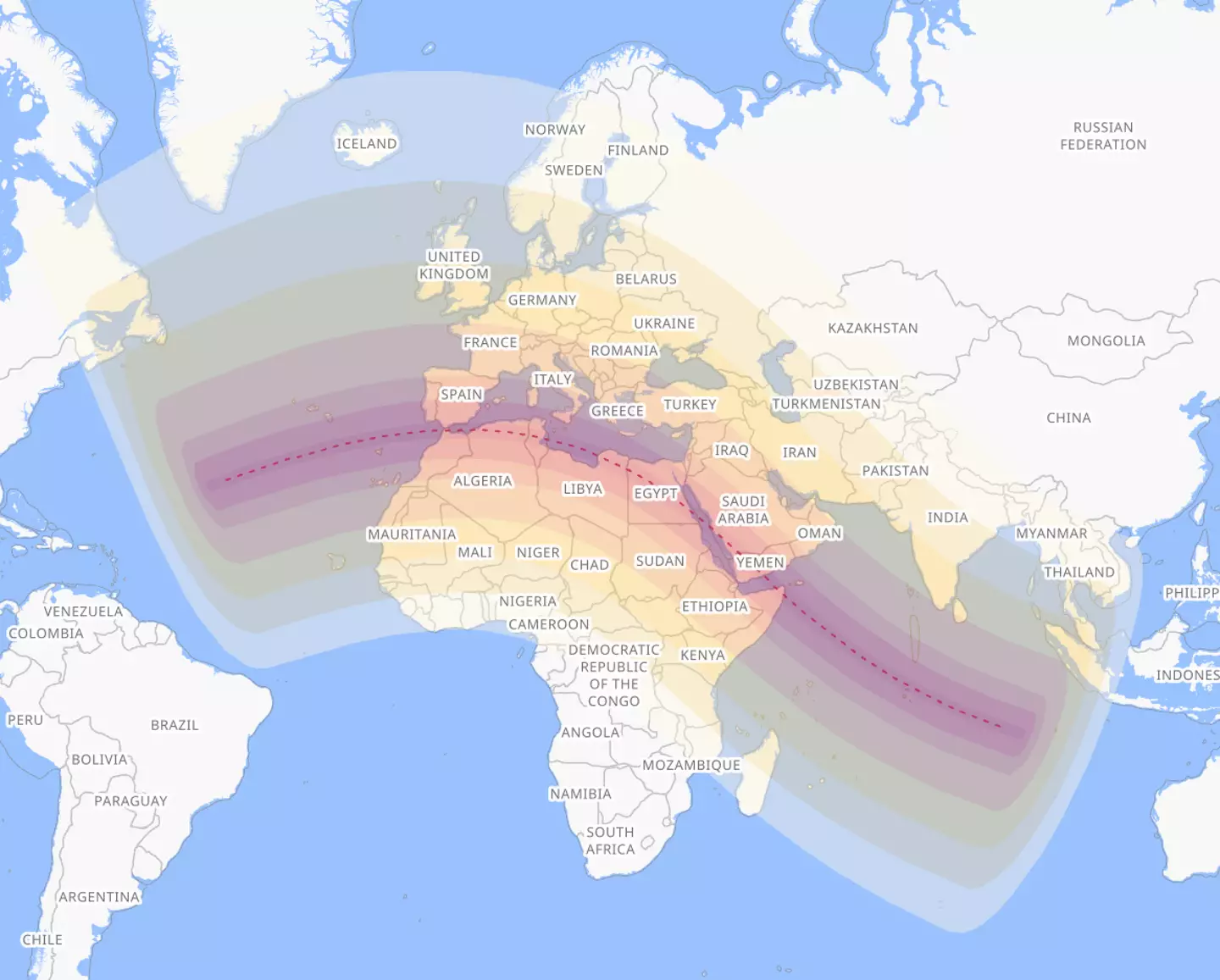
One of the longest solar eclipses of the century so far is set to happen very soon, causing 10 countries to be plunged into darkness as Earth lines up perfectly with the path of the Sun and Moon.
While solar eclipses themselves aren't exactly rare occurrences, having ones that last this long makes the upcoming event one that you definitely won't want to miss out on.
As reported by the Manchester Evening News, this particular event known as the 'Great North African Eclipse' will be fully visible from 10 countries, and will affect far more in partial fashion across the globe.
When will the solar eclipse happen?
The Great North African Eclipse will take place on August 2, 2027, so you've got plenty of time to prep and make sure you're in the right place before this happens, as it could be a once in a lifetime event.

Advert
It's expected to take place between 8 AM and 10 AM GMT, with a totality lasting roughly 6 minutes and 21 seconds, which is among the longest registered this century.
The longest solar eclipse ever recorded happened all the way back on June 15, 743 BC, lasting a total of 7 minutes and 28 seconds. This upcoming event isn't too far off then, and scientists estimate that between now and the year 3000, the longest will be around 7 minutes and 29 seconds on July 16, 2186.
Which countries will be affected by the solar eclipse?
10 countries will be affected by the full solar eclipse as the moon blocks out the sun in its entirety for the previously stated length of time, so here is where you need to be if you want to witness it in full:
- Algeria
- British Indian Ocean Territory
- Egypt
- Gibraltar
- Libya
- Morocco
- Saudi Arabia
- Somalia
- Spain
- Sudan
- Tunisia
- Yemen

Certain parts of these countries will be affected more than others, especially those that stray further from the central eclipse line. Only parts of southern Spain, for example, will get the full totality, and the further you stray from this the shorter the length of the eclipse will become.
Places like Tangier in Morocco, Oran in Algeria, Sfax in Tunisia, Luxor in Egypt, and Abhar in Saudi Arabia appear to have the best chance of viewing the complete solar eclipse based on a map provided by Timeanddate, although anything within the 'red zone' will be able to experience the totality with countries on the periphery only getting a partial eclipse for around 20 seconds at best.
